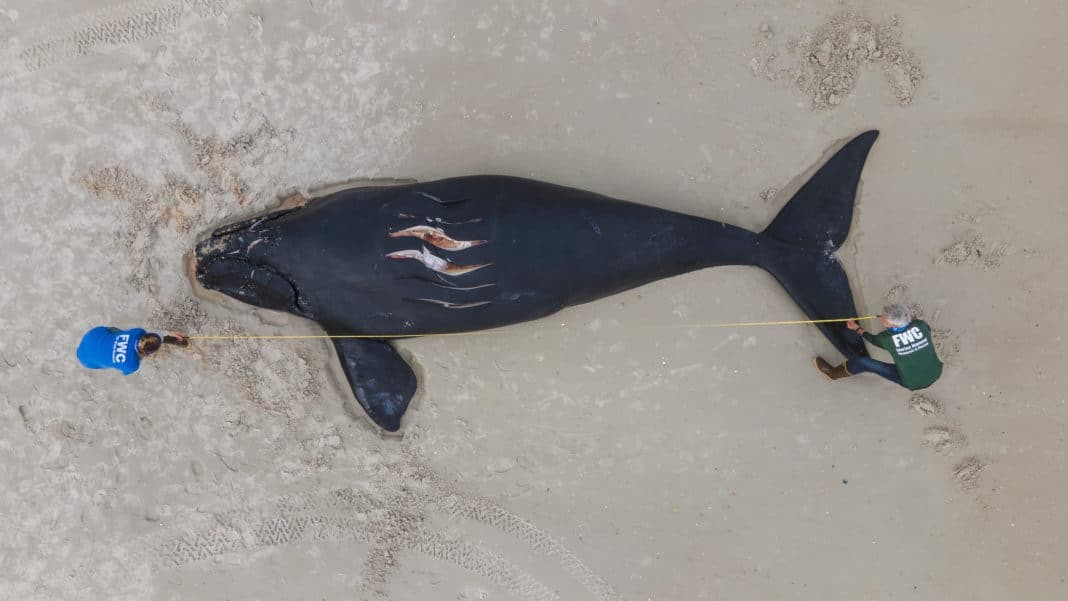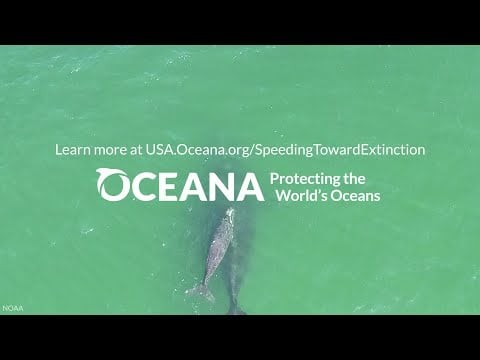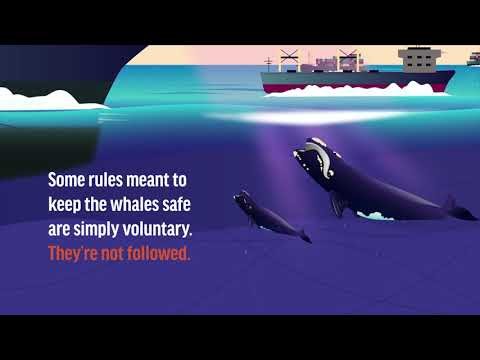Oceana has released a new report finding that most vessels are exceeding speed limits in areas designed to protect critically endangered North Atlantic right whales, of which only around 360 remain.
Oceana analyzed vessel speeds from 2017 to 2020 in speed zones established by the US National Oceanic and Atmospheric Administration (NOAA) along the US Atlantic coast, and found non-compliance was as high as almost 90% in mandatory speed zones, and non-cooperation was as high as almost 85% in voluntary areas.
Collisions with vessels are one of two leading causes of injury and death for North Atlantic right whales. Studies have found that slowing vessel speeds to 10 knots reduces a North Atlantic right whale’s risk of death from vessel strikes by between 80% to 90%.
While Oceana’s analysis focused on vessels 65 feet or larger that are required to use public tracking devices, vessels of all sizes can cause fatal injuries to North Atlantic right whales. In fact, a calf died earlier this year from propeller wounds, broken ribs, and a fractured skull from a collision with a 54-foot recreational fishing vessel, according to NOAA.
Whitney Webber, campaign director at Oceana, said:
“Vessels are speeding, North Atlantic right whales are dying, and there’s not enough accountability. Oceana’s analysis shows that speeding vessels are rampant throughout North Atlantic right whales’ migration route, all along the East Coast, and in both mandatory and voluntary speed zones. North Atlantic right whales are dying from vessel strikes and NOAA must take action to prevent this. Killing even one is a problem, as scientists estimate that even a single human-caused North Atlantic right whale death a year threatens the species’ chances of recovery.
“If NOAA is serious about its mandate to save North Atlantic right whales from extinction, speed zones must be designated in the areas where whales currently are, and they must be enforced. Until speed zone rules are mandatory and violators held accountable, North Atlantic right whales will continue to die on NOAA’s watch.”
Check out Oceana’s report here.
(Featured image credit: FWC, Tucker Joenz under NOAA permit #18786)



